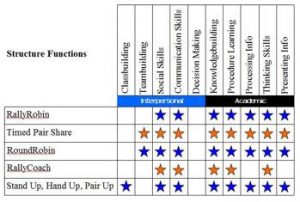Mozilla announced $2.4 Million in Prizes for Schools Teaching Ethics Alongside Computer Science. The first round of winners were announced: the winners’ proposed curricula are novel – They include in-class role-playing games to explore the impact of technology on society. They embed philosophy experts and social scientists in computer science classes. They feature “red teams” that probe students’ projects for possible negative societal impacts. And they have computer science students partner with local nonprofits and government agencies.
The winners will receive awards of up to $150,000, and they span the following categories: public university, private university, liberal arts college, community college, and Jesuit university. Stage 1 winners are located across 13 states, with computer science programs ranging in size from 87 students to 3,650 students.
Read more here: https://blog.mozilla.org/blog/2019/04/30/2-4-million-in-prizes-for-schools-teaching-ethics-alongside-computer-science/

 How can we engage students in our classes? There are many great articles on the web on this topic, and perhaps one of the most prominent are the Kagan structures:
How can we engage students in our classes? There are many great articles on the web on this topic, and perhaps one of the most prominent are the Kagan structures: